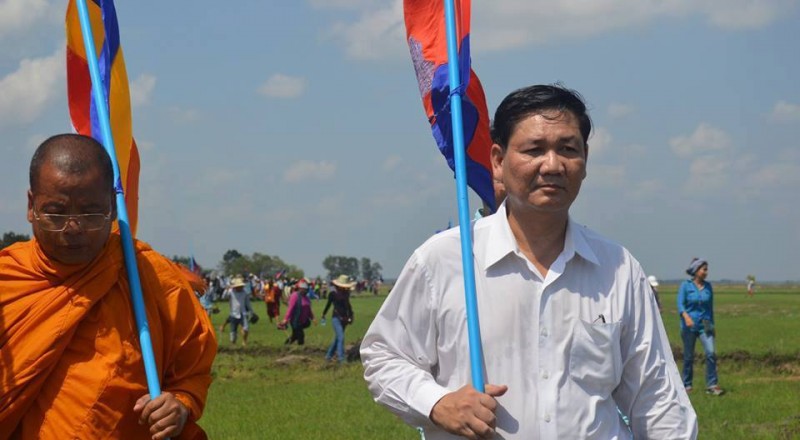Seeing the forest for the trees: Cambodia commits to achieving carbon neutrality by 2050
ថ្ងៃចន្ទ ១រោច ខែបុស្ស ឆ្នាំឆ្លូវ ត្រីស័ក ព.ស.២៥៦៥ ត្រូវនឹងថ្ងៃទី១៨ ខែមករា គ.ស.២០២២
Monday the 1st Waning Moon of Phussa B.E.2565, January 18, A.D.2022 Year of the Cow
Cambodia begins the new year as the first nation in Southeast Asia to publish a plan to achieve carbon neutrality by 2050. The roadmap, known officially as a “Long-term strategy for Carbon Neutrality (LTS4CN)”, was submitted to the United Nations Convention on Climate Change (UNFCCC) on the 30th of December 2021. This fulfilled a promise by Prime Minister Hun Sen to present such a plan by the end of 2021 and it followed on the heels of his government’s pledge, at COP26 Glasgow last November, to reduce Cambodia’s greenhouse gas emissions by more than 40 percent of median levels by 2030.
 “Implementation of the carbon neutrality strategy in Cambodia is expected to increase our nation’s GDP by nearly 3 percent and to create some 449,000 jobs by 2050” says Say Samal, Minister of the Environment for Cambodia. “Forestry sector reforms, decarbonization of transport systems and the promotion of low-carbon agricultural and goods production processes will lead the way to a greener economy and more sustainable prosperity for all”.
“Implementation of the carbon neutrality strategy in Cambodia is expected to increase our nation’s GDP by nearly 3 percent and to create some 449,000 jobs by 2050” says Say Samal, Minister of the Environment for Cambodia. “Forestry sector reforms, decarbonization of transport systems and the promotion of low-carbon agricultural and goods production processes will lead the way to a greener economy and more sustainable prosperity for all”.
Minister Samal lauds the efforts of his government, the Ministry of the Environment, and those of Cambodia’s National Council for Sustainable Development for committing to go beyond putting pen to paper. “In good times and bad, Prime Minister Hun Sen has proven that he is a man of his word, and I take pride in following his example” says Say Samal. “Cambodia has a solemn obligation to do its part, in concert with more developed nations, to achieve net-zero carbon dioxide emissions by 2050.”
Cambodia’s “Long-term strategy for Carbon Neutrality (LTS4CN)” is designed to be a synergistic approach that seeks to balance economic growth and social justice with greenhouse gas reductions and climate resilience. The Cambodia Climate Change Alliance program (funded by the European Union, Sweden, and the United Nations Development Program), the United Kingdom, the World Bank, the Food and Agriculture Organization of the United Nations, the Global Green Growth Institute and the Agence Française de Développement have contributed their extensive expertise to the preparation of this strategy. We are most grateful for their input, and we welcome their assistance in the coming years.
Cambodia has a 400 megawatt foothold in solar energy development. The country is steering away from coal-fired power generation and hydro power development on the Mekong River has been ruled out. “We are seeing “REDD” when it comes to our forestry resources” says Say Samal. “REDD, as in “Reducing Emissions from Deforestation and forest degradation in Developing countries” – a program sponsored by the United Nations. Cambodia is committed to reducing deforestation by half by the year 2030 and to reaching zero emissions in its forestry sector by 2040.”
We have seen the global community come together to face down a biological threat that most of us could not have imagined barely two years ago. Yet, we had been warned. Let us heed the warnings about global warming. Let us apply ourselves with the same resolve, by increasing international funding for climate change mitigation initiatives. Cambodia stands ready.
Please click the link below to consult the official LTS4CN document as prepared by the Government of Cambodia.
https://bit.ly/3t1BfIL
Related
សូមគាំទ្រឧបត្ថម្ភ សហគមន៍ខ្មែរក្រោម Support KKC
សូមអរគុណដ៏ជ្រាលជ្រៅចំពោះសប្បុរសជននូវវិភាគទានទាំងនេះ។
We’re On Facebook

Sign in
Click here to reload the page over ssl.




